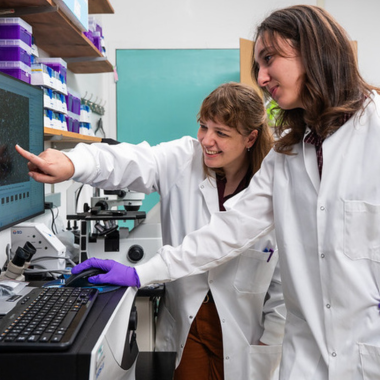BMB alum Piro Lito joins Frontier Medicines' scientific advisory board
Piro Lito, M.D., Ph.D., associate member and attending physician at Memorial Sloan Kettering Cancer Center (MSK) has joined the scientific advisory board of Frontier Medicines Corporation, a precision medicine company seeking to unlock the proteome to advance breakthrough therapies against otherwise undruggable disease-causing targets.
Lito received his B.S. and Ph.D in Biochemistry and Molecular Biology and his M.D. at Michigan State University. He completed his residency in internal medicine at the Beth Israel Deaconess Medical Center at Harvard Medical School, and his fellowship in medical oncology at MSK. Lito is board certified in internal medicine and medical oncology.
“We are thrilled to have Dr. Lito join our scientific advisory board, comprised of industry leaders in oncology, drug development and discovery research,” said Chris Varma, Ph.D., Frontier’s co-founder, chairman, and CEO. “Dr. Lito is a world-renowned physician-scientist investigating KRAS mutations and their impact on intracellular signaling and cellular function. We look forward to working with him as we move our lead program, a dual inhibitor of inactive and activated KRASG12C, towards clinical candidate selection.”
Lito’s research focuses on proteins that drive cancer cell growth aiming to uncover the fundamental processes that govern tumor biology and to identify novel therapies that prolong survival and improve the quality of life in patients with cancer. More specifically, his research has made several key contributions in the effort to better understand KRAS-driven cancers and to develop therapeutics that directly target mutant KRAS.
“Frontier aims to develop drugs targeting some of the most important proteins for cancer cell growth and has the potential to make an impact in cancer care,” said Lito. “We know that KRAS regularly switches between the activated and inactive states. Blocking both of these states could be an important innovation in the care of patients whose tumors harbor a KRAS mutation. I look forward to collaborating on these programs.”
Lito’s laboratory also examines the heterogeneity that exists within cells in a tumor and combines single-cell sequencing methods along with biosensor technologies to map how different tumor populations respond to therapy, potentially leading to an understanding of varying responses to cancer treatment.



